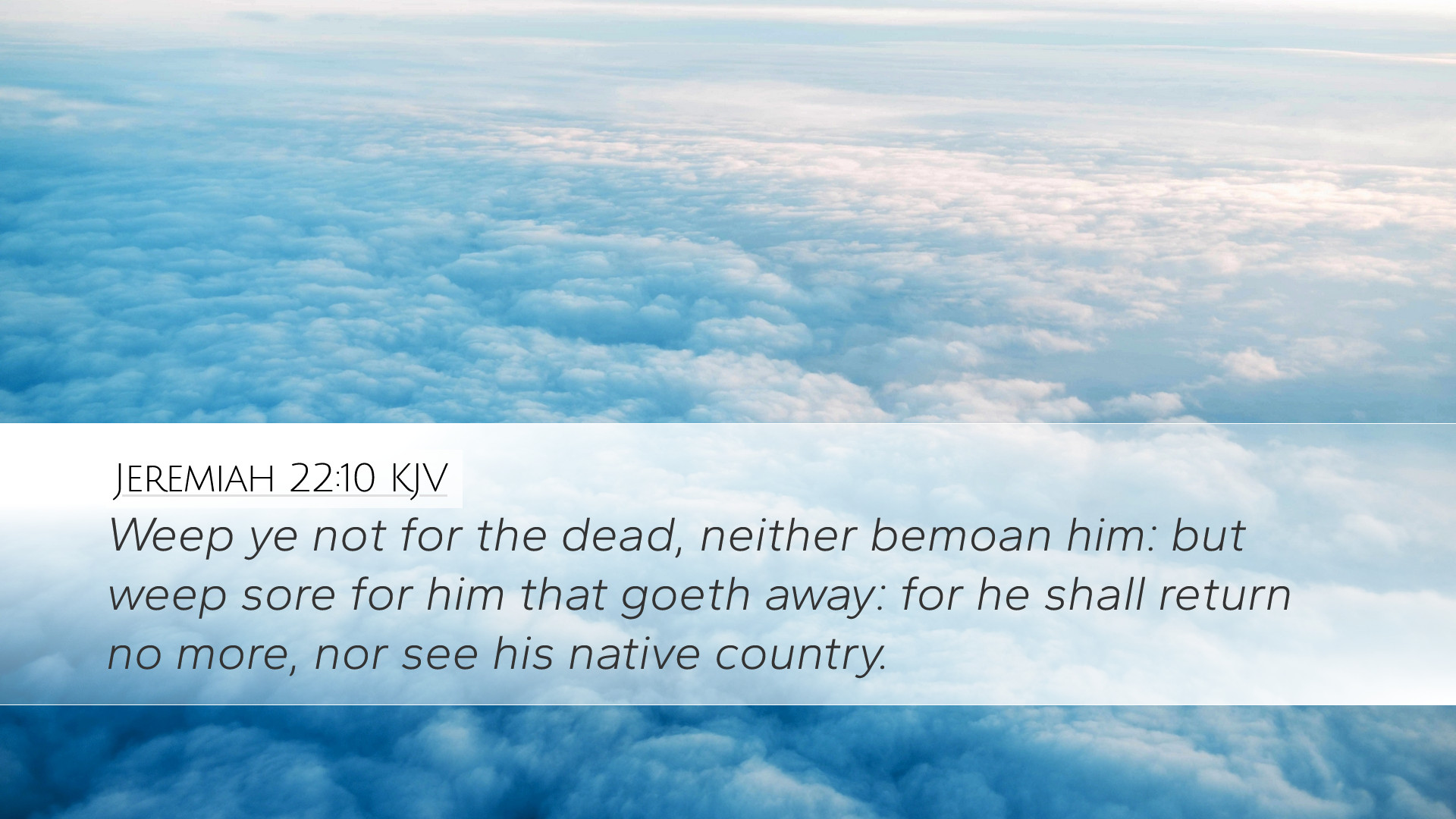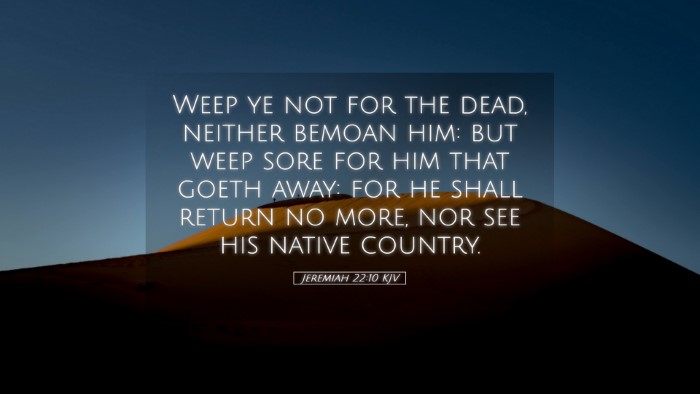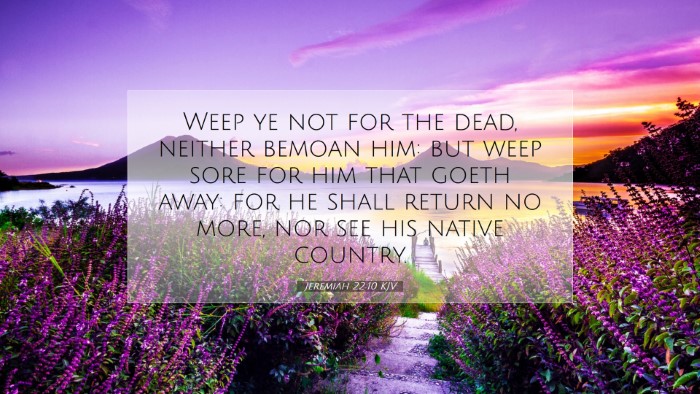Commentary on Jeremiah 22:10
Verse Context: Jeremiah 22:10 states, "Weep not for the dead, neither bemoan him: but weep sore for him that goeth away: for he shall return no more, nor see his native country." This verse falls within a larger discourse by the prophet Jeremiah concerning judgment, exile, and the futility of lamentation for those who are already lost to the consequences of sin.
Exegesis and Interpretation
This verse reflects the heart of God mourning over His people, particularly in the face of inevitable judgment. The exhortation here is to redirect grief from those who have departed (in death) to those who are heading into exile, emphasizing the permanence of their separation from their homeland due to sin and rebellion against God.
Matthew Henry's Insights
Henry emphasizes the gravity of the situation in Judah and the hope lost with the impending exile. He remarks that while it is natural to grieve for those who have died, it is more sorrowful to see a people led away from their homes and God. This consideration leads to a deeper theological reflection: the true tragedy is a spiritual one, the loss of relationship with God.
- Grieving the Wrong Things: Henry points out the futility of grieving over those who have passed when there is a greater need to lament for those who are spiritually dead.
- Understanding Exile: He outlines that the exiled will suffer not just the loss of their land but the loss of God's favor. This is a call to repentance, reminding leaders and people alike that their sin leads to such dire consequences.
- Hope Amidst Judgment: Even in his lament, Henry hints at the overarching hope found in God’s promise for restoration after judgment.
Albert Barnes' Commentary
Barnes elaborates on the contrast between the living and the dead in this verse. He suggests that mourning for the dead does serve a purpose but must not eclipse the gravity of the situation faced by the living who continue in sin.
- Call to Action: Barnes encourages a proactive mourning for the living. This is a profound call for intercession and concern for the spiritual status of one’s community.
- Cultural Significance: He refers to the cultural customs of mourning, which illustrate the depth of sorrow associated with separation. However, he insists that this sorrow must be proportional to the severity of spiritual consequences.
- Theological Perspective: Barnes reinforces that what matters most is one’s relationship with God. The loss of this relationship is why we should weep.
Adam Clarke's Commentary
Clarke provides a detailed analysis of the phrase "weep sore for him that goeth away." He reflects on the inevitability of exile and the impending doom for the nation of Judah based on their actions and God's judgment.
- Exile as Judgment: Clarke notes that the 'going away' refers to both physical exile and spiritual estrangement. He draws connections between this verse and the larger narrative of the Israelites' covenant with God.
- Importance of Repentance: Clarke emphasizes that the proper response to this judgment is not merely sorrow but a genuine turning towards God which reflects true repentance.
- Lasting Impact of Sin: Through Clarke’s lens, the verse serves as a caution to remain faithful to God to prevent disaster, urging the nation to consider their ways and turn back to God.
Theological Reflections
This verse invites complex theological reflections that are of great significance to pastors, students, and scholars alike:
- The Nature of God's Judgment: It presents God as a righteous judge who does not take pleasure in the death of the wicked but mourns over their loss, a theme that resonates throughout Scripture.
- Community Responsibility: There is a profound communal aspect where the sins of a nation lead to the spiritual and physical plight of its people, emphasizing intercessory prayer and collective repentance.
- Hope in Exile: Even in the prophecy of doom, the latent message of hope speaks to God’s faithfulness to His people, implying that restoration is always attainable if they return to Him.
- Spiritual Existence vs. Physical Death: The passage challenges readers to reconsider what it means to live a life that is pleasing to God, what defines true life in relation to God, rather than merely physical existence.
Conclusion
Jeremiah 22:10 conveys a powerful message about the consequences of sin, the nature of grief, and the pursuit of restoration. As we apply the insights from Henry, Barnes, and Clarke, it is evident that the focus on spiritual realities must overshadow physical lamentation. The call is clear: while we mourn the lost, we ought to devote our energies to seeking revival and reconciliation with God, both personally and communally, as we await His promise of restoration.


